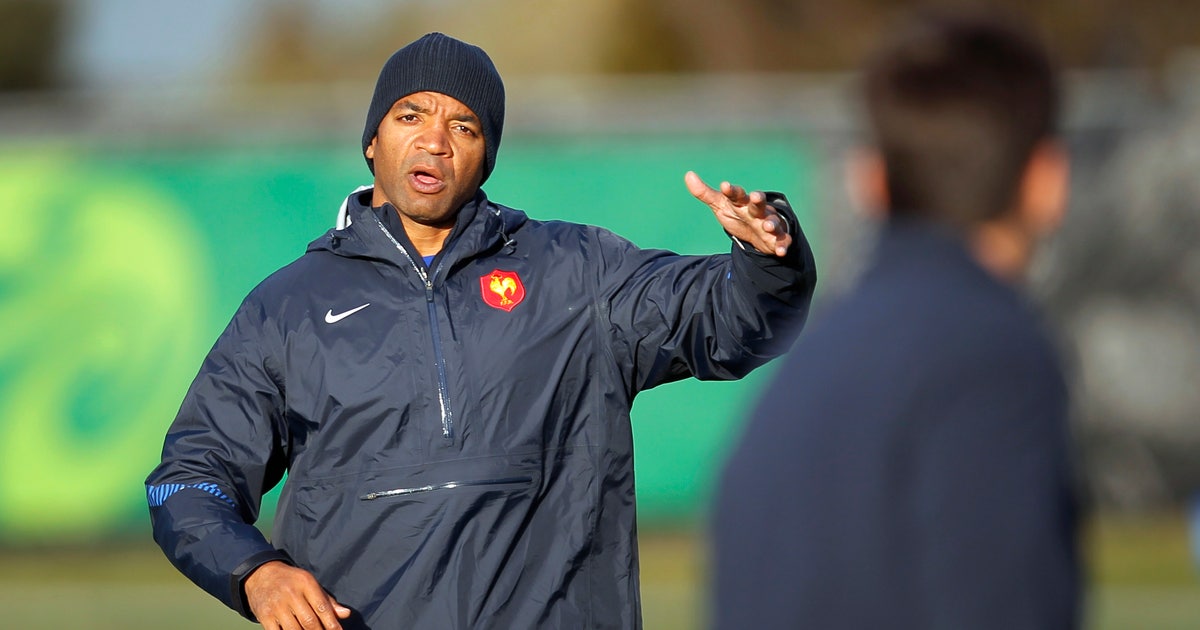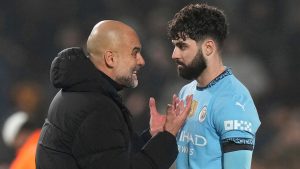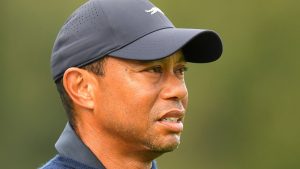Ntamack learning to cope with pressure of a famed rugby name


It’s not easy to follow in your father’s footsteps when he is one of the best wingers to have played for France.
Nor is it any easier to shoulder a huge burden of expectation at the age of 20.
It’s impossible to escape the spotlight when a rugby great such as Jonny Wilkinson is tipping you to reach the very top of the game.
But that’s what flyhalf Romain Ntamack is coping with at the Rugby World Cup.
He is tipped to start Sunday’s quarterfinal against Wales, 20 years after his father helped France reach the final in one of the tournament’s greatest matches.
Emile Ntamack played 46 times for France and is equal fifth on its all-time try scorers’ list with 26. He was among the best wingers of the 1990s, along with late New Zealand great Jonah Lomu. Although by the time France upset New Zealand 43-31 in the 1999 World Cup semifinal, he had shifted to center.
He is well placed to advise the equally versatile Romain on life at rugby’s top end, but remains discrete so as not to increase the pressure on his son.
“He has never told me how I should play, he just tells me to enjoy it because these are unique moments in a career,” the younger Ntamack said. “We are privileged to be here. He just told me to savor every moment. I listen carefully to his advice so that I have no regrets, and as many memories as possible.”
His father has plenty of those. After all, he won four matches in his career against New Zealand, which not many players have done. He was part of the team which earned widespread praise on its Tour of New Zealand in 1994, where Les Tricolors won 23-20 at Eden Park — a feat no other team has achieved since. He scored France’s first try and was involved in the famed second by fullback Jean-Luc Sadourny — known as The try from the end of the world because it was launched from the French quarter.
He earned praise from Lomu for his performances on that tour, and now his son is receiving some high-profile compliments of his own.
“What I see in him is an enormous potential. He’s capable of doing everything,” Wilkinson told sports daily L’Equipe’s TV channel. “With a bit more experience, he’ll understand things even better. He needs to get the opportunities, needs to be supported and given confidence.”
Wilkinson, the scorer of England’s winning dropped goal in the 2003 World Cup final against Australia, was speaking after France beat Argentina 23-21 in their opening World Cup game. Ntamack helped launch early attacks with his slick passing and clever kicking, coolly slotted over two penalty goals and converted both of France’s tries.
It was his World Cup debut, yet it looked like he had been around for years.
Veteran fullback Maxime Medard has played 62 tests for France, including in the 2011 final loss to New Zealand. He is struck by how smoothly Ntamack made the transition to World Cup rugby.
“He already has the character of a player who’s 30,” Medard said. “He’s calm, and he doesn’t panic.”
Although Ntamack appears shy and not very verbose, Medard explains that this is just his way of dealing with raised expectations.
“On the pitch he expresses himself and talks a lot,” he said. “As a No. 10 has to — so he’s not introverted.”
Ntamack’s performances in Japan have been polished rather than spectacular, although selection choices have stifled the halves in terms of getting any partnerships going.
So far, it’s fair to say, Ntamack has yet to show his full range of creative passing and has stood out more through his kicking.
He started alongside scrumhalf Antoine Dupont against Argentina, but was on the bench for most of the 33-9 win over the United States as Camille Lopez started one alongside Maxime Machenaud.
Confusing?
Well, that’s because France has been chopping and changing the halves in the past decade or more.
Current coach Jacques Brunel has picked a different halves pairing in all three games.
So in the 23-21 win against Tonga, it was Ntamack returning at flyhalf alongside Baptiste Serin and scoring two tries and kicking three penalties.
Brunel would likely then have picked his strongest XV for the last Pool C game against England last Saturday, but the contest against old rival England was among those called off because of a typhoon devastating parts of Japan.
Still, Ntamack is touted to line up against the Welsh.
He made his test debut against Wales in the Six Nations this year, albeit at center, and has one try and a dropped goal in 11 tests. Previously, he showed glimpses of his undoubted talent for the French Barbarians and — not least — the France team which won the Under-20 World Cup.
He starred in the semifinal win against New Zealand, scoring the game’s only try.
Like father, like son, then.
At club level, too, for they have both played for standout side Toulouse in the French top division.
Emile played his entire career there, making more than 350 club appearances and winning three European Cups to go with six French titles.
After the World Cup, Romain will start his third season with Toulouse.
Romain joined Toulouse’s rugby school at the age of five.
Over the years, it might have felt like he was always trying to emulate his father. But Emile never won a World Cup, something Romain still has the chance to do.






